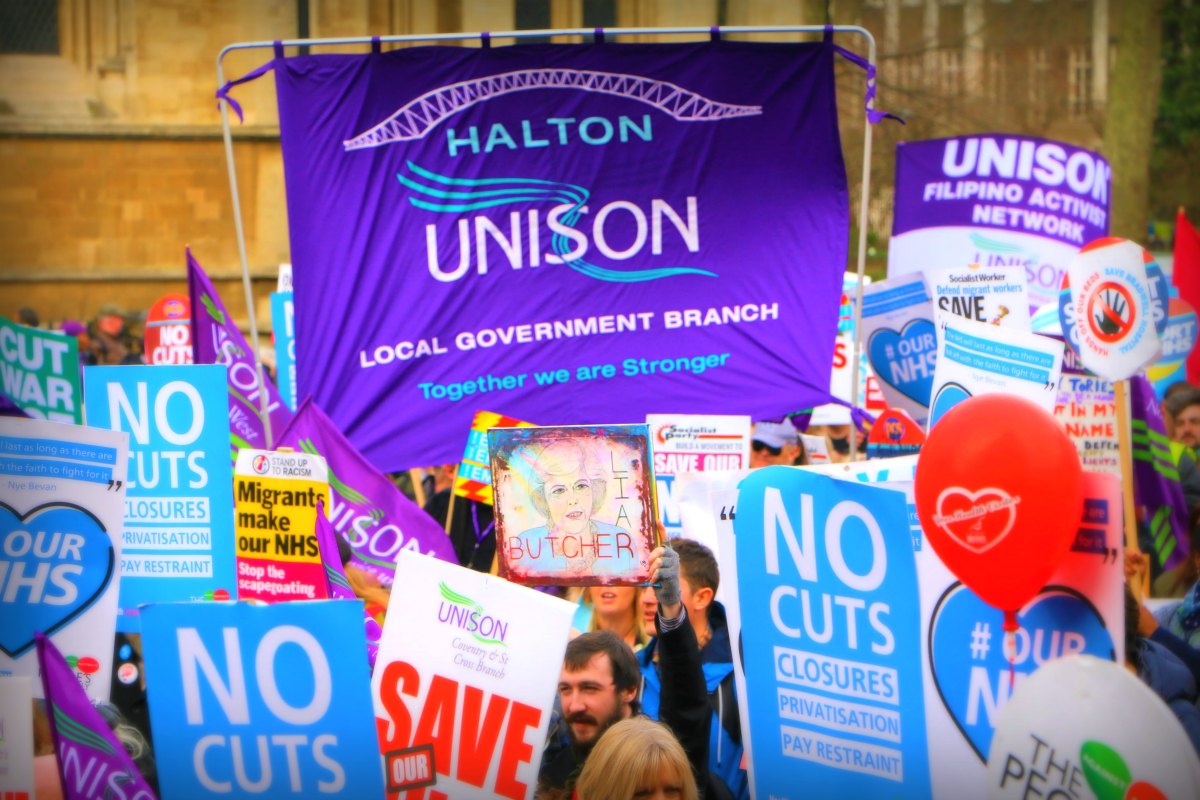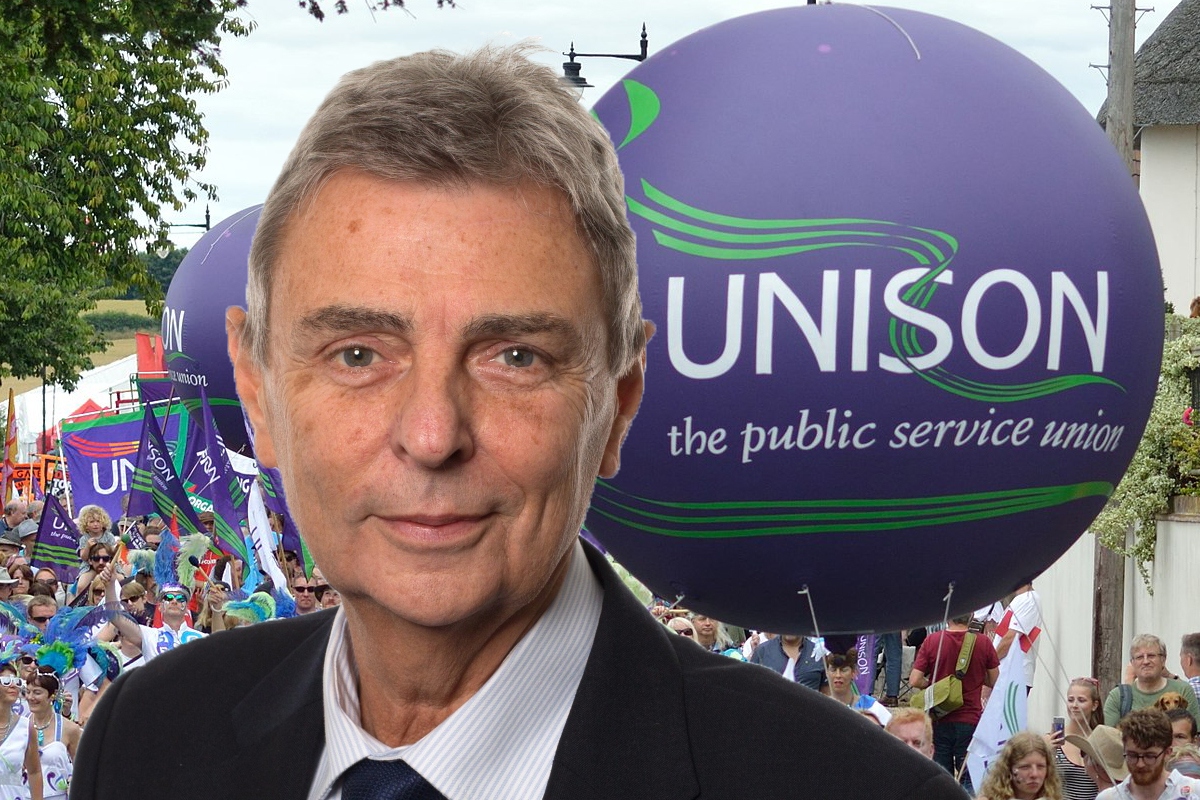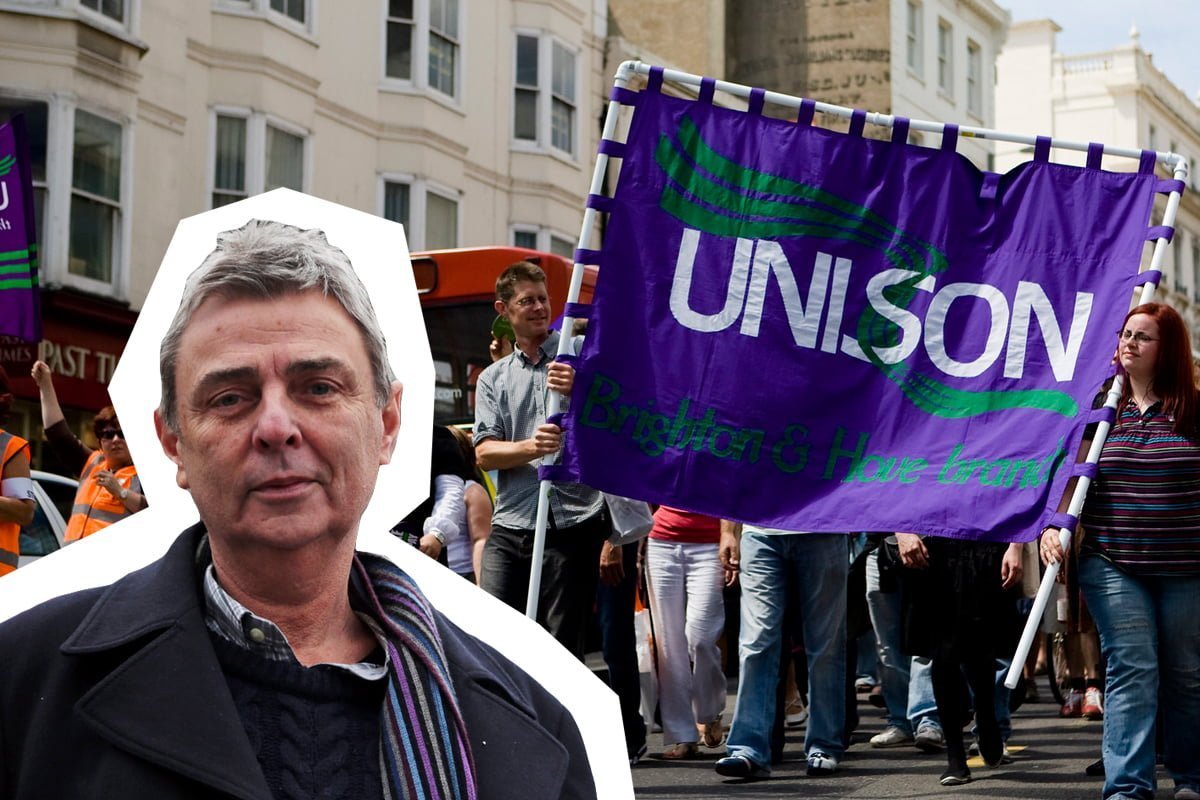Dave Prentis, the right-wing general secretary of Unison, the large public sector union, is stepping down. His retirement provides an opportunity for the left to mount a challenge, and turn Unison into a powerful fighting force.
After 20 years as general secretary of Unison, Dave Prentis has announced that he will retire in December. The contest to replace him as the head of Britain’s largest union is an important event for the labour movement.
With 1.3 million members, Unison is the dominant union in the public sector. And it plays a key role within the Labour Party: locally, regionally, and nationally. On the Labour NEC, for example, the union’s representatives have generally supported the party’s right wing, despite the Unison Labour Link voting twice to support Jeremy Corbyn for leader.
The outcome of the union’s leadership election could therefore have a major influence on the Labour Party in the coming period.
Frontline
 Unison members have been on the frontline during the pandemic, and throughout the decade of austerity seen since 2010. The coronavirus crisis has brought the vital role of NHS workers and local council workers – all represented by Unison – to the fore, with struggles to secure PPE and maintain essential services to communities.
Unison members have been on the frontline during the pandemic, and throughout the decade of austerity seen since 2010. The coronavirus crisis has brought the vital role of NHS workers and local council workers – all represented by Unison – to the fore, with struggles to secure PPE and maintain essential services to communities.
Unison organises in every local authority and every NHS trust. It has a unique position in the public sector. This could – and should – be used to launch national campaigns; coordinate action across sectors; and intervene politically, at a local and national level, to defend services.
The union has demonstrated that it can mobilise members in defence of pensions; or in local battles, such as the current Tower Hamlets dispute. But too often branches are left to fend for themselves.
This means that there is a constant conflict between activists demanding a lead, and a passive leadership determined to keep their distance. The attitude of the union leadership has been one of fatalistic resignation in relation to cuts. To quote one national Unison official, “If the miners couldn’t defeat Thatcher then what chance do we have?”
This pessimistic analysis permeates the outlook of the national leadership. The result has been a failure to follow through in terms of coordinated national action – for example on pensions. Despite the largest one-day public sector strike in history in 2011, there has been a shocking lack of fightback against austerity since.
Crucially, in a union organising hundreds of thousands of low-paid women workers, there has been a consistent failure to fight against low pay.
NHS privatisation; the erosion of terms and conditions; and cuts: all these are a constant threat to the public sector and Unison members. Despite recent Tory claims about ‘ending austerity’, these pressures are only likely to get worse.
Already, 400 NHS and public health professionals have signed an open letter demanding that healthcare is excluded from the upcoming Trade Bill, otherwise “the NHS will be on the table in future trade deals”. As Brexit looms, Big Pharma and private medical companies are circling to get their share of the spoils.
Struggle
A mass struggle to defend jobs and services and oppose privatisation would generate huge support. Healthcare workers have gained enormous respect during the pandemic. The problems facing the NHS have been catapulted into the limelight; public awareness has probably never been greater.
The defence of the NHS has to be fought at a national level – both politically, as well as on the industrial front. That means challenging the current passive ‘opposition’ provided by Starmer and the Labour leadership.
Austerity will hit hardest in local government. Before the pandemic, many councils were on their knees. The impact of COVID-19 on services, as well as the loss of income from the crisis, means many are teetering on the edge of bankruptcy.
The days of the so-called ‘dented shield’ have long gone. The cupboard is bare. The only alternative to never-ending cuts is a militant struggle against austerity and the Tory government.
Unison must take a lead in this, providing the backbone for a mass campaign by Labour members, councillors, trade unionists, and community activists around the country.
So far, however, we have seen the opposite. The union’s National Joint Council, which leads on local government pay, stepped back from a 10% pay claim. Instead, representatives agreed to “consult” on a 2.75% offer, which they stated was “the best that can be achieved by negotiation”.
Unison has recently seen a 49,000 increase in membership. This upturn follows on from years of attrition, particularly in local government.
This surge reflects the times we live in. The impact of the pandemic in the NHS, for example, means that workers need to be organised – now more than ever. But simply adding numbers doesn’t solve the problems that members face. What is needed is to organise and mobilise this potentially powerful force.
Leadership
 The general secretary election should be an opportunity to step back and review the experiences of the last 20 years; and to develop a strategy to combat the enormous tsunami of austerity and attacks looming on the horizon.
The general secretary election should be an opportunity to step back and review the experiences of the last 20 years; and to develop a strategy to combat the enormous tsunami of austerity and attacks looming on the horizon.
The challenge for the left inside Unison is to organise members to build an open, democratic, and fighting trade union. Too often, the leadership have sought to isolate and witch-hunt left activists. Meanwhile, tens (if not hundreds) of thousands of jobs have been lost; services have been destroyed; and the most vulnerable sections of society have suffered.
There are no shortcuts. Attempts to build a genuine broad left have been hamstrung by sectarianism. Central to the development of a genuine left is organising on a local basis, building points of support for socialist ideas, and developing a fighting programme. Attempts to just go for positions and ‘build from the top’ have frequently ended in failure.
In the short term, the general secretary election will most likely see a ‘continuity’ right-wing candidate, alongside a potential challenger from within the bureaucracy, such as Roger MacKenzie, the current assistant general secretary. MacKenzie has a record of supporting Corbyn and opposing NHS privatisation.
There will be substantial pressure for the left to organise around a single candidate. In 2015, Prentis won with 49.3% of the vote. It is still early days, and potential left candidates will likely emerge.
Above all, Unison needs a fighting socialist leadership – one that will represent the interests of our members at work and within the Labour Party. Socialist Appeal supporters in Unison are playing a role in that struggle.






